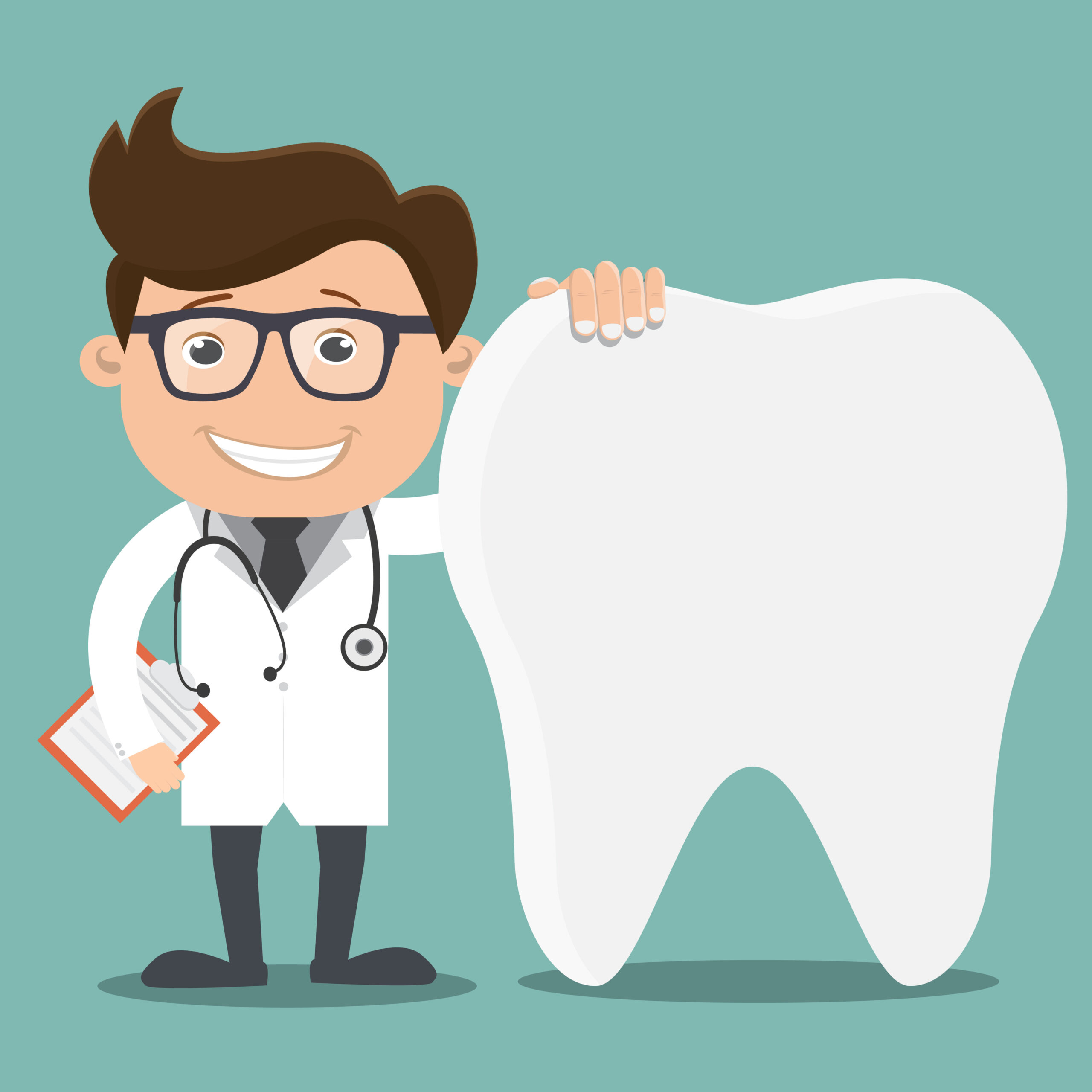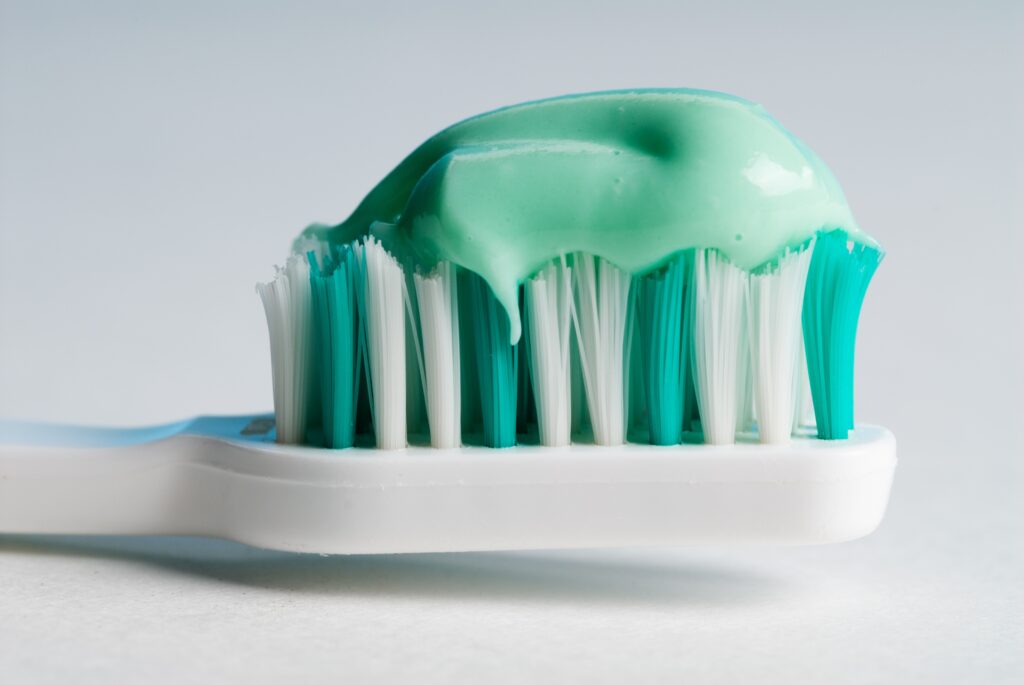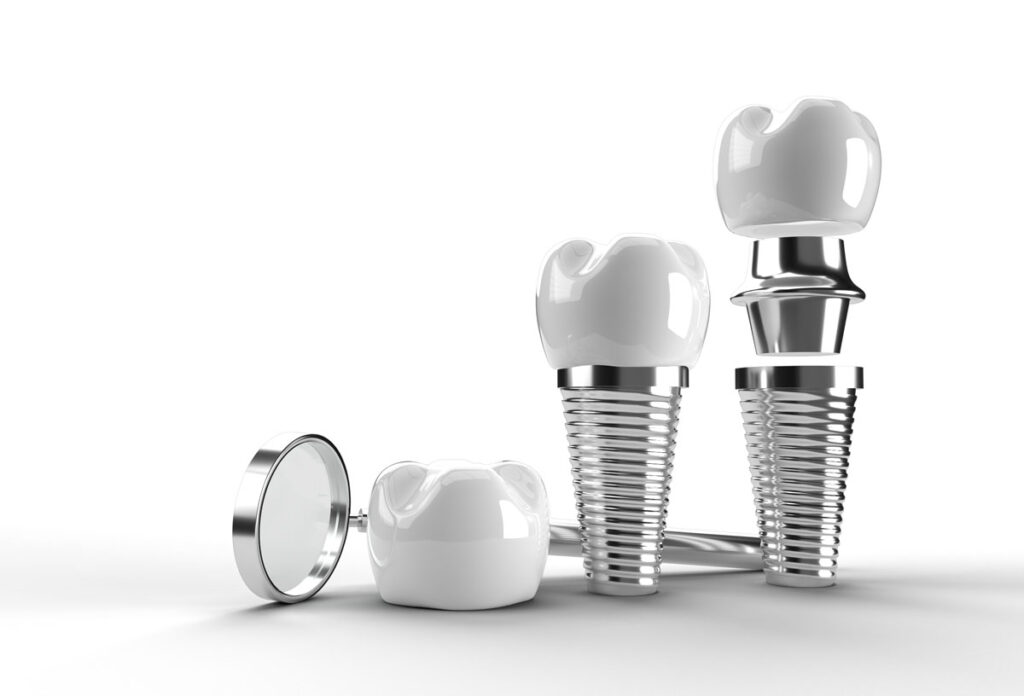Updated: 1/10/2020
How to find a dentist you like may be subjective. Everyone has characteristics and skills they’re looking for in a dentist, which may differ from what someone else wants. While someone may want a dentist who is relatable, asks good questions and gets to know you as a person, others may want a dentist who will get you in and out of the office in a timely manner, which may mean cleaning your teeth without a lot of chit-chat.
Despite these differences, most of us can probably agree we want a good dentist who will treat our teeth and gums, will deal with us honestly and will offer these services at an affordable price.
Here are some considerations we think can help you find a dentist you like.
How to Find a Dentist You Like
- Determine what type of dentist you need (family dentist, an adult dentist near you [general dentist], pediatric dentist, endodontist, prosthodontist, etc.)
- Ask family and friends for recommendations. You can also consult your family doctor for suggestions. And, if you’re moving, consult your current dentist for referrals.
- Look up reviews online. Whether you’re checking out a dentist your friends or family have referred you to or a dentist you saw online, reviews can be a great way to see what people do and do not like about the dentist.
- Visit the dentist and see how you like them.
- If you don’t like that dentist or you notice red flags while there, repeat these search steps again.
Finding a dentist you like takes time, but taking the time to look for one now will save you a lot of headaches in the future.
How to Know If You’ve Found a Good Dentist
Many people do not enjoy going to the dentist, and there are some valid reasons behind this.
The time you have to take off work to go to your appointment, where you have to endure long waits in the waiting room and be half-heartedly greeted by a receptionist who hates her job; then, once you’re in the dental chair, having to bite down on those plastic, wing-shaped devices that are much too big for your mouth (they hold the film for the x-ray) while the dental hygienist fumbles around and slowly takes x-rays of your mouth.
Once the cleaning begins, you might get sprayed in the mouth and face by the ultrasonic scaler the dental hygienist is holding while she picks at your teeth with the dental probe; this is then followed by a consultation with your dentist who says you need even more work to fill some cavities that were found, which is going to cost a lot of money and force you to take more time off work and endure more uncomfortable treatment.
Sounds awful, doesn’t it? But picture this:
You enter the dental office and are met by a clean, relaxing space, soothing music in the background and a friendly face, who asks how you’re doing and how the family is (calling you and your family members by name).
After a short wait in the waiting room, you’re brought out of the lobby and to your room where you sit down and take x-rays. Fortunately, the dental hygienist knows this is an uncomfortable process so she is quick to take the pictures the dentist needs.
Next comes the cleaning. The hygienist is precise in her work so you only have minimal water sprayed on the outside of your mouth and finish the cleaning with that fresh, sensational feeling of clean teeth.
Finally, the dentist meets with you for a consultation about what other work is needed. Although you do need additional fillings, you aren’t pressured to get them all done right away or pay for them all at once. The dentist can take care of one or two of them at your convenience (though he still may stress the importance of getting them taken care of) and works out a payment plan to help you cover the cost.
The experience is drastically different, isn’t it? That is the power of going to a good dentist, which often results in a dentist you like. But how do you find such a dentist?
Commonly Agreed-Upon Qualities of a Good Dentist
1. Flexible Hours and Scheduling. The importance of this will depend on you, but a lot of people enjoy and really benefit from finding a dental office that has flexible hours and scheduling (that is, availability outside of the typical 8 to 5, Monday through Friday time frame when people are still at work).
Even if their availability is a small window beyond that 8 to 5 time frame, that still offers some options for you.
How about follow-up appointments? Do you have to wait to see the dentist 3-4 weeks out for follow-up work or do they have more availability than that? While this may be a sign the you’ve found a popular dentist, it doesn’t do too much good for you if your tooth is hurting and you’d rather not wait.

2. Has a Clean Office Space. As mentioned above, a contributor to a positive experience is entering an office that is clean and orderly. If the office isn’t put together and seems unclean, it may not be the best place to have someone working on your mouth.
You’ll also want to pay attention to the hygienists and dentists once you’re in the office chair to see if they’re diligent about changing out their gloves if they’ve messed with the overhead light, dug through drawers, etc. It’s important to find a dentist who is aware of this. There could be a lot of germs in that office and you don’t want those germs transferring to your mouth.
3. Short Wait Time. A good dental office often strives to reduce wait times for patients. Granted, emergencies come up that a dentist may need to see to so it’s possible you will have some wait time, but if you’re having to wait long periods each time you visit the office, it could be an indication that the dentist doesn’t value your time as much as his. Good dentists try to be punctual, as best they can.
4. Breaks Up the Cost. This is an important one. Dental work and treatment is typically expensive. In addition to finding a discount dental plan to help reduce dental costs, you may want a dentist who is happy to work out some type of payment plan for dental work or break up treatment over several visits to help you afford the work. This is a positive trait of a good dentist. They understand that paying for dental work is a sacrifice and difficult on families and they don’t abuse that.
5. Doesn’t Push Their Upsells. I read somewhere that good dentists do not upsell products, EVER. I don’t believe that’s true. I have met several really good dentists who do upsell other products or services (electric toothbrushes, teeth whitening, etc.), but they don’t push the upsells too hard. They won’t pressure you to buy or keep asking after you’ve said no. Some dentists won’t even mention their upsells; they’ll just have signs around the office advertising them and if you ask they will be happy to discuss it.
6. Gets to Know Patients. Does your dentist know your name or ask you questions about different events and areas of your life you’ve mentioned before? It seems strange to put this expectation on dentists, but it’s something that some people associate with good dentistry–dentists who try to get to know their patients. They do this by:
- Actively listening to what you say
- Asking follow-up questions about things they remember you saying before (maybe a trip you mentioned you were taking, a job change happening for you or your significant other, a child’s birthday, etc.)
- Warning you about dental treatment that needs to be done that they know you’re anxious about. For instance, if you don’t like shots, your dentist should remember that and try to distract you so you aren’t so focused on it. This can create a more positive experience at the dentist.
Again, this point may be subjective. Some people may not want this. They’d rather have a dentist who is quick and to the point with treatment. Others want a dentist who is relatable. Some dentists are good at both.
7. Treats the Staff with Respect. How does the dentist treat his staff? Do the receptionist and dental hygienist seem to enjoy their jobs there? Do the dentist and other employees speak kindly and respectfully to one another? Everyone is going to have difficult days, but if you notice employees speaking badly or harshly with each other, that may be a sign to find another dental office.
8. Follows Up on Treatment. For a lot of dentists, it’s easy to do the treatment and think, That’s the end of that. But a good dentist follows up with his patients after the treatment to see how they’re doing, how they’re feeling, and to make sure treatment did what it was supposed to (filling a cavity, taking away tooth pain, etc.).
9. Happy and Willing to Answer Questions. How does the dentist do with questions? A good dentist will be happy to answer questions you have. Come to the office with a list of questions prepared and see how they respond. Is he quick to brush them aside or does he take your concerns seriously and address them with patience and gentleness?
Warning Signs of Bad Dentistry
To help you find a dentist you like, we thought it would be prudent to go over a few signs to look for in a bad dentist. This will help save you from a lot of frustration and anxiety later on.
1. Extensive and Expensive Treatment Recommendations. The difficult part of dental care is the great subjectiveness of the industry. It’s common to hear varying diagnoses and treatment estimates from different dentists. However, hearing drastically different recommendations could be a warning sign that one of those dentists isn’t being honest with you. If you’re not sure which one, it may be worth the investment in another opinion.
Sounds troublesome, right? But if you’re really unsure, you could really benefit from that second opinion.
Some examples of extensive treatment that might be recommended include the dentist telling you…
- you have a mouth full of cavities
- all of your fillings need to be replaced
- you need surgery to extend your receding gums
If this happens, especially if you haven’t had a history of dental problems, take a step back and find another dentist to give you a second opinion. It’s worth the time and a little extra money (to pay for an additional dental visit) to save you hundreds of dollars, if not thousands. This is the most common pattern of fraud–recommending unnecessary treatment!
It’s possible your previous dentist missed something or something has developed during your transition between dentists, but drastic problems are likely not to have developed so quickly or been overlooked.
2. Pressure to Receive Additional Treatment Immediately. Unless you have serious dental problems that could be affecting your overall health or can get worse if left unchecked, most dental treatments aren’t usually emergencies. They could become so over time so you definitely want to get them taken care of as soon as possible, but feeling pressure to get all of that treatment done in one day may be a stretch.
Most dentists are happy to type up a treatment plan for you to look over and consider, then make a follow-up appointment to start the work. They can usually split up treatment over several appointments, too, to help with the cost.
3. Pushing Upsells. Like I mentioned before, a lot of dentists have started upselling other products–like electric toothbrushes, in-office teeth whitening and more–but it’s the way that they upsell that holds up the red flag or not. If they are overly pushy with the upsell and don’t seem to take no for an answer, you may want to find another dentist. Dentists are, first and foremost, to care for our dental health, not salesmen trying to get ahead.
4. Recommending Unnecessary Treatment. This is huge. There are a few different treatments/procedures that some dentists will recommend that are unnecessary and may be a red flag that indicates you’re getting scammed:
- Excessive x-rays. Dentists who want to do a full set of dental x-rays at every visit (who know you just had them done at a previous dentist) or claim that they can’t treat someone without getting x-rays first may be trying to earn your money, not treat your dental health. The ADA recommends limiting a full set of x-rays to every 2 years, at most, to limit radiation exposure.
- Deep cleanings. Deep cleanings are normally reserved for patients who have frequent gum infections or periodontal problems. If you have neither, you may want to opt out of these cleanings. These treatments are often expensive so if you don’t really need one, you don’t want to pay for one.
- Tooth fillings. Whether the dentist is recommending new fillings that you know you don’t need or is telling you to replace ALL of your old fillings, you may want to get a second opinion. Granted, fillings do need to be replaced eventually, but having them done immediately and all at once is unnecessary, unless it’s been a really long time since you had them put in. But even if that is the case, your dentist can still break up these treatments for you.
Questions to Ask a New Dentist
As you scope out new dentists, it’s good to have questions prepared to ask them. Think about what’s important to you in a dentist and add those questions to this list. The following questions are common questions that patients ask of dentists and ones that can be helpful to know if you intend to see this dentist long-term.
- What insurance plans/discount plans do you accept?
- What payment methods do you accept? Do you offer payment plans?
- What are your office hours? Are you available after hours or on weekends should a dental emergency arise?
- How long have you been in business?
- Where did you study dentistry? What are your qualifications to practice dentistry?
- Are there different options (materials) to choose from for fillings, dental implants, dentures?
- What kind of anesthesia is offered at your dental office?
- Are there amenities like TV or music?
- Do you provide care for adults and children? Does your office work with kids often?
- Do you pride yourself on having the latest technology in your office?
What are you looking for in a dentist? Share your list with us in the comment section below!







Awesome post! Keep up the great work!
Great tips on finding a new dentist!
This was a very helpful and well-done article. It should be widely circulated.
I really like the list of questions that you included at the end of the article about what you should ask your new dentist. After all, not many people know what they should ask about once they’ve sat down for the initial consultation. However, I do think that the question about insurance is the most important because you really need to work out how you are going to be paying the dentist.
That’s a great point!
Now that our kids are old enough to receive dental care, we are looking to find a dentist who can treat each member of our family. It is helpful to know that one should ask a dentist if they provide care for adults and children. Finding out if the office works with kids often would be beneficial. We will keep this advice in mind as we make our choice, thanks.
A friend of mine just moved to a new area and is searching for a new dentist, but he doesn’t know what qualities to look for. It’s good to know that a sign of good dentistry is that they get to know the patients they work with to help them feel more comfortable. I will make sure to let my friend know about this information to help him find a dentist that he can work with.
I didn’t realize how important it is to choose a dentist that offers treatment for extensive conditions, like a mouth full of cavities. My sister just moved to a new town. Hopefully, she can use this info to find a dentist that can help prevent and treat any cavities that have formed.
I have been researching dentists in my area and appreciate any tips on finding a good one. I like how you mentioned getting to know the patients. Personally, I would want my future dentist to have an interest in getting to know me to ensure I stay a happy patient.
I like that you mentioned to find a dentist who cares about his patients and shows real interest in them. That way, you can know that he will do everything he can to take the best care of you possible. I need to find a new dentist, because I just moved to a new city. I will keep these tips in mind, thanks!
Definitely! And since you recently moved, be sure to check out our mover’s guide to health for some other tips: https://www.1dental.com/blog/2014/05/06/new-movers-guide-health/
I loved when you said that you can look at online reviews to find out what people like or don’t like about a dentist you want to hire. It is important to remember that learning what other people think about the dental provider you are considering can help you find the one that has the best reputation in your area. WE are planning on moving to a new house and want to make sure we find a dentist that can work with our insurance company, so I’m glad I found your post.
My wife and I just moved to a new area and need to find a new dentist office but we aren’t sure where to start. I like that you suggest getting a referral from your current dentist if you are moving. We might have to get our last one a call and see if he knows anyone here. Thanks for the help!
Here are a few more ideas for finding a good dentist. Ask for referrals. If friends or coworkers are happy with their dentist, that’s a great sign. Check for reviews on Google, Yelp, Facebook, etc. Lots of good reviews is usually a good sign. You can also check the website NextDoor, it’s fairly new tool. On NextDoor you can get good referrals from local folks. And finally, if there is a large university near by, you can contact them and ask for a good dentist in your area. Dental schools are an overlooked source for finding a good dentist.
Overall this article is a good resource that folks should use when consulting a new dentist. Thanks.
Thanks for sharing! I find the part about checking reviews while choosing a dentist especially useful. My friend has recently moved into another state, so I’ll definitely share this useful information just in case if any unexpected situations with the teeth health come up.
Thanks for the tip that excessive x-rays are something that should be kept to a full set every 2 years. It’s been a while since I last was able to go to the dentist, so it’s time that I should set up some dental appointments. I moved to a new area a few months back, so I’ll have to ask around for suggestions in finding a new dentist
Thanks for the advice on how to find a dentist! I like how you mentioned, under “Has a Clean Office Space.”, that an office that’s unclean is not well suited for someone to work on your mouth. Additionally, proper hygiene of the dentist should be taken into consideration. I’d be sure to follow your tips, especially on how willing the dentist is to answer my queries. I hope I’d be able to find a reliable one near our place so that I would be able to get my family to be checked too.
I like that you mention that a good dentist will break down the costs for you and make sure that you understand everything going into the office. It’s important that they take the time to get to know you. My family and I just moved to a new city, so we’ll now have to be on the lookout to find a good new dentist.
Thanks for helping me learn more about finding a dentist that you like. One thing that I found very interesting was that you should always ask family and friends first before you make any decisions because they will often times have great options for you. With that being said, we recently moved and need to take our kids for a regular checkup and a cleaning so we will ask our neighbors. Thanks again!
I’m just settling down in this new city that I moved in to because of job and it’s almost time for my dental checkup so I need to find a good dentist that I could trust with my oral health. I agree that hygiene is one of the most important considerations when choosing a dental clinic so it is important that a dentist’s workspace is clean. In the last part of your article, it reminded me to consult the list of accredited dentists and dental clinics from my HMO which should make the hunt easier. I’ll also ask for recommendations from my colleagues to make sure that the dentist I’m going to is skilled and reputable.
Awesome tips to find difference between bad and good dentist. First thing to check is their working hours if they match our availability or not. Thanks for the information and sharing signs of bad dentists.
Hi Dr. Rodney Raanan, thank you for your comment. I just wanted to reiterate that what may appear as a “bad dentist” to some is a “good dentist” to others. We were hoping to emphasize with this post that we all have preferences and it’s important to know and understand those preferences to find a dentist “you” will like!
Thank you for reading and engaging with our content!
Finding someone that can be flexible with your schedule can be hard to do these days. Most people work 8 to 5 and that leaves no room to get an appointment. Like you said too, it is important to find someone that keeps an organized and clean office.
If I had a mouth full of cavities, I imagine I would be at the dentist’s immediately because of how much pain I would be in. Thankfully I haven’t had one yet, but my family has a history of dental diseases. If I ever run into a problem like that, I’ll have to make sure that I use your tips to find a good dentist.
To keep your teeth clean and protect your mouth from any types of oral diseases the importance of a good dentist is very much essential. When you need to find a good dentist it’s hard to know where to begin. The best way to know if a dentist will be a good fit for you is to sit down and get to know him a little better before making your final decision. Knowing their appointment time for their patient check up you make your appointment schedule weather it is suitable for you or not. A good dentist with many years of experience of their service may become very much beneficial for you.
I do like how you gave the example of receiving such a pleasant welcome in a dentist’s office can really help in rejuvenating you. The simple act of having the people in our potential dentist clinic to call my family by our names is simply a great customer service to experience. That is why I’ll be sure to find a dentist that can offer these kinds of wonders for me and my family. Thanks!
My husband and I have just moved, and we are wondering for a great new dentist that we can visit for out teeth. So I appreciate your suggestion to find a dental office who doesn’t make you wait too long since it’s a sign that the professional values your time. We will definitely have to make sure that the dentist doesn’t make us wait too long since neither of us has much free time either.
I like your advice about considering if a dentist has short wait times. It would be good to consider this because it would help ensure that you will not spend a long time waiting for your appointment. I’m looking for a dentist to provide regular cleanings, so I’ll have to consider how long of a wait time they have.
Thank you for all the tips on how to find a dentist that you like. I’m moving soon and I really need to find a new dentist. I really like how you listed a bunch of questions to ask a new dentist. I really like your idea to ask if they are available after hours or on weekends if there was a dental emergency. It would be really nice to know if I can go to them if anything were to ever happen.
Thanks for the tips on finding a dentist. We just moved, so finding a new one is vital for us. I’ll be sure to visit different offices and see how clean and orderly they are, like you mentioned.
I have been meaning to find a dentist for my family for a while now, but I haven’t actually started yet because I do not know how to find one. It was good that I came across this article and learned that it’s best to go to a dentist with a flexible working schedule so that we can come by whenever we need their assistance. I will make sure to add that to my list, but I will still make more research so as to be sure that I find myself the best dentist. Thank you!
That’s great, Juris! I’m so glad this article was helpful for you.
Thanks for mentioning how a dentist should have positive reviews from other clients. I also like how you said that they should have flexible hours. My husband and I are looking for a reputable dentist to clean our teeth.
Hi Natasha, thanks for sharing this well-researched and informative guide on how to find the right dentist. Really helpful. Another question that one should ask the dentist is what different types of dental services do he/she offer. This will help you during emergencies, as you would now know whom to contact if a need arises.
That’s a great question to ask. Thank you for sharing!
I like how you said to follow up on treatments with your dentist. I recently found a cavity in my tooth. I appreciate the tips on finding a dentist you like.
I really like your suggestion to look for a dentist who has extended business hours, especially if your schedule is busy. My wife and I both have full-time jobs, and because of that, we have a hard time finding time to take our children to the dentist. I will be sure to talk to any local dentist’s offices for extended business hours to accommodate our busy schedule!
Thanks for pointing out that a good dentist will be able to fit your work schedule. My friend is moving to a new area, so she’s been wanting to find a dentist. These tips will totally help her out, but is there anything else she should keep in mind?
I’ve never thought about looking at how the dentist treats their staff. This seems like a great way to make sure the dentist has respect. I’m trying to find a dentist in my new area, I’ll have to keep this in mind. Hopefully, I can find the best dentist in my area.
I like that you mentioned that a good dentist will have flexible hours and scheduling times. I am trying to find a new dentist for myself, and it is very important to me that scheduling will work with me easily. I will be sure to check the flexibility of the hours of a dentist before I decide to make them my dentist.
I like how you mentioned that I should find a dentist with flexible hours and scheduling, as one never knows when they may have a dental emergency. The other month, I got hit in the face with a car door. Since then, I’ve been wondering what I wouldn’t have done if I had knocked some teeth loose. Thank you so much for all the great tips on how to choose a dentist!
Oh goodness! Yes. You would have needed a dentist to see ASAP if you had lost a tooth.
I really appreciate your tip to try and find a dentist who will meet with you for a consultation. My wife and I have been thinking of getting a new dentist since we moved far away from our old dentist. I will be sure to check if we can have a consultation with any potential dentists.
Finding a dentist that you actually like and feel comfortable with can be a bit of a challenge. However, as the article points out, there are a few things that you can look for in order to better raise your odds. For example, if the dentist does actively get to know their patients then it is likely that they want you to like them which will make things much easier.
Great article, I love the tips you give when it comes to finding a new dentist.
I like your suggestion to choose a dentist that has a clean office space. My husband and I recently moved, so we need to find a local dentist. We’ll take your advice and consider the cleanliness of the office space in our decision.
I like what you said about finding a dentist that treats their staff with respect. I would say that finding a new dentist is a worthwhile pursuit. If I were to need a new dentist, I would keep your criteria in mind.
I’m needing to get some dental work done but since I recently moved I don’t have a dentist. Thank you for suggesting that I should make sure and visit a dentist before I decide to be their patient. I’ll have to look into finding the best dentist in my area.
Thanks for pointing out the determinants between a good and inefficient dentist and providing the list of questions! This will surely come in handy. To me personally, my primary criteria are the dentist’s expertise and professionalism, anything after that is an added bonus for me like patient care, clean office space, amiable staff, and what not. Great read!
Thanks for the tips, it’s very helpful
You’ve got some great advice for finding a new dentist. I love how you said that it’s smart to ask family friends, and even your doctor for recommendations. We just moved, so I’ll have to settle for asking new neighbors and coworkers, but that should work.
Congratulations on the move! Hope you are able to find a dentist you like nearby.
Thank you for mentioning that when looking for a dentist you should ensure that they have a clean office. My family and I just moved into a new area and are trying to find a new dentist that is suitable for our family I will definitely take your tips into consideration in my search for a suitable dental practice for my family.
I need to get my teeth cleaned soon and I recently moved to a new area, so I don’t have a dentist yet. You make a great point that I should look for a dentist who has flexible hours and scheduling. This way I won’t have to stress out about getting work off and it will be easy to make an appointment.
My family and I are looking for a reliable dentist since we just moved to this area. I will ask friends and new neighbors to see if they know a good dentist around here. Thanks for pointing out the options on how to find a new dentist.
For the last few weeks, my back left molar has begun to get increasingly painful. I have no idea what happened to it, but I want the pain to go away. Thank you so much for pointing out that a good dentist will value your concerns and questions and will take the time to answer them respectfully. I will have to follow your advice as I look for a dentist that could help me.
I have been feeling a sharp pain in one of my bottom back teeth whenever I eat cold food like ice cream and popsicles, and I’m worried that it might be a cavity. It might be a good idea for me to go to the dentist and have it checked out. Thanks for mentioning to ask questions to potential dentists about their office hours as well as how long they have been in business.